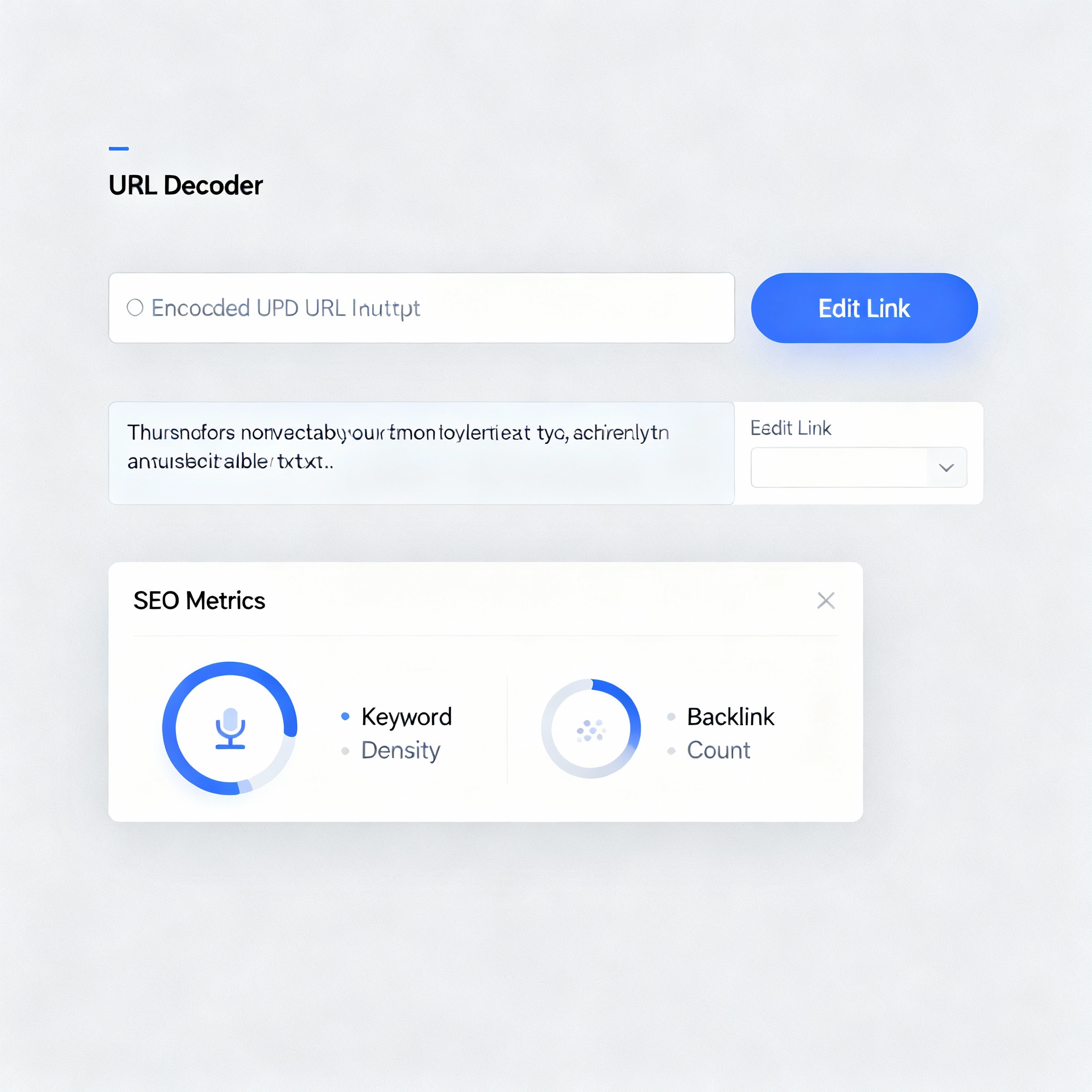
URL decoder
Created on 19 October, 2025 • Converter tools • 83 views • 2 minutes read
A URL decoder is a valuable online and software tool that converts encoded URLs—those containing percent-encoded
A URL decoder is a valuable online and software tool that converts encoded URLs—those containing percent-encoded characters such as %20 for a space or %3A for a colon—back into their original, readable format. This process is crucial for web developers, SEO experts, marketers, and content creators who routinely analyze, edit, or debug URLs to ensure optimal site performance and user experience.
What is a URL Decoder?
Definition and Purpose
A URL decoder reverses the work of a URL encoder. It translates percent-encoded characters within a URL or query string back into their native form. This improves readability and allows better management, troubleshooting, and documentation of web addresses containing parameters, special characters, or international text.
Example:
Original encoded URL: https://example.com/query?title=SEO%20Guide%202025
Decoded version: https://example.com/query?title=SEO Guide 2025
Key Benefits and Use Cases
Content Quality and Editing
- Converts complex, machine-encoded URLs into human-friendly strings for easier review and update.
- Helps editors and marketers create clean, readable URLs for sharing, analysis, or campaign tracking.
- Facilitates precise correction of broken or misconfigured links in web pages, emails, or analytics reports.
Technical Debugging and Development
- Enables developers to analyze logs, server requests, or API interactions by revealing the true content of URL parameters.
- Simplifies the troubleshooting of encoding errors, missed redirects, or data mismatch issues.
- Supports integration with form processors, databases, and third-party applications that deliver encoded URLs.
SEO and Analytics
- Decoded URLs reveal keywords and campaign names in query strings, aiding analytics, performance tracking, and strategy optimization.
- Help detect duplicate content, orphan links, or crawl errors by surfacing the actual URL path and parameters.
- Allow teams to review UTM codes, user tracking data, or custom variables embedded in long URLs.
How a URL Decoder Works
- Paste the encoded URL into the decoder’s input field.
- Click “Decode”; the tool instantly converts percent-encoded text to its plain form.
- Copy or export the decoded URL for reuse, further editing, or sharing.
Some advanced tools may allow batch decoding, database integration, or API access for real-time URL management.
SEO Impact and Best Practices
Enhanced Readability and Link Management
- Readable URLs are more likely to be clicked, shared, and trusted by users, improving engagement and SEO metrics.
- Decoded URLs simplify link audits—making it easy to spot irregularities, duplication, or misdirected traffic in a site’s link architecture.
- Clean URLs result in higher crawlability and efficient indexing by search engines.
Data Transparency for Campaigns
- Decoding URLs helps review actual campaign data, UTM codes, and custom tracking strings, ensuring accurate attribution and competitive insights.
- Supports cleanup and consolidation of URLs for canonicalization, preventing problems with duplicate content and ensuring proper ranking.
Collaboration and Consistency
- Teams can collaborate with clearly visible and understandable URLs, improving workflow and reducing miscommunication.
- Decoded URLs support documentation, reporting, and client-facing communications with professional clarity.
Conclusion
A URL decoder is essential for content quality, technical troubleshooting, and SEO strategy. By returning machine-friendly URLs to a human-readable state, you gain better control over link structure, analytics, and site optimization. Regular use of URL decoders fosters clean, authoritative, and user-friendly web environments, driving higher rankings and engagement for businesses and publishers.
Popular posts
-
GIF to BMPImage Manipulation tools • 583 views
-
GIF to WEBPImage Manipulation tools • 462 views
-
GIF-to-PNGImage Manipulation tools • 363 views
-
SHA-3/512 generatorConverter tools • 292 views
-
GIF to JPGImage Manipulation tools • 257 views